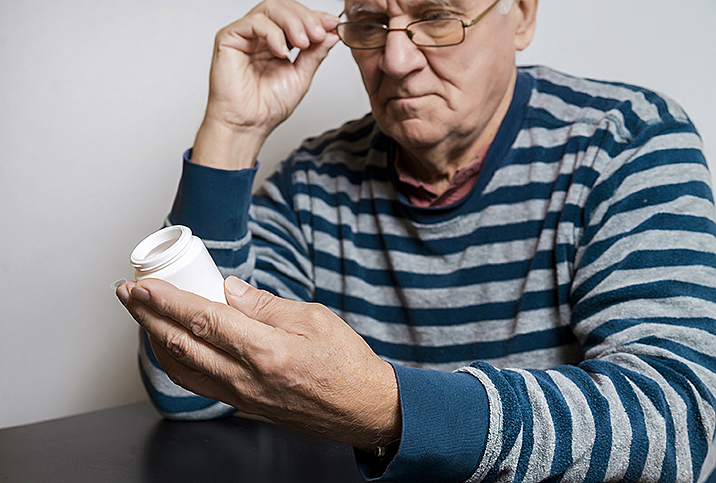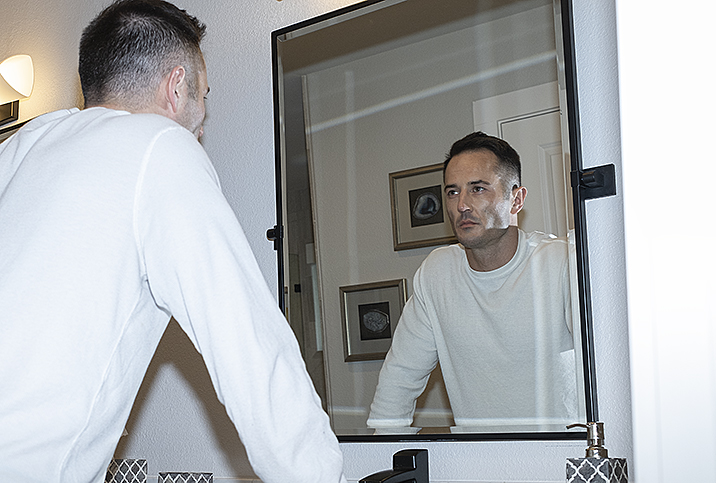Pain Management & ED (and What You Can Do About It)

Research on erectile dysfunction (ED) has revealed a lot about the condition in the past few decades. We now understand many of its underlying causes and how to treat many of the physical and psychological conditions from which ED stems. Even with so much information, however, a few specific areas are often overlooked. One of these is pain management and ED: how chronic pain and the ways we treat it can often complicate a man's sex life.
Chronic pain can be detrimental to men's sexual functioning in a variety of ways. It can exacerbate pain during sex. It can cause difficulty both getting aroused and reaching orgasm. The medications, particularly opioids, used to treat chronic pain have possible side effects that impact sexual activity. Many men experience intimacy issues because of some or all of the side effects.
Pain is a big deal
The problem of dealing with chronic pain and sexual dysfunction is perhaps much broader than most people would imagine. For instance, surveys of men with lower back pain show nearly 50 percent report that pain affects their sexual enjoyment. Seventy-two percent report having sex less frequently after suffering chronic back pain.
Factoring in all the various types of chronic pain other than back pain, and the fact that more than 120 million Americans live with chronic pain of some kind, it appears that the condition may be a much more common cause of decreased sexual activity than previously thought.
Orgasm & opioids
What makes the prevalence of ED among men with chronic pain issues even more unfortunate is that orgasm has been shown to produce an analgesic effect, essentially raising one's pain threshold.
Any discussion of modern pain management is incomplete without mentioning opioids. The powerful (and powerfully addictive) drugs are still prescribed generously despite the overdose crisis they fueled. Indeed, when it comes to erectile dysfunction and opioids, you're doubly behind the eight ball, since the drugs that ease the pain are known to cause hormonal imbalances such as lowered testosterone levels.
One meta-analysis looked at nearly 9,000 men from 10 previous studies and suggested that men who use opioids in any capacity are at a higher risk of ED.
Giddy urologist Dr. Edwin Morales explains in depth how certain medications can cause erectile dysfunction. Watch the video here.
Managing pain & ED at the same time
While both erectile dysfunction and pain management are complicated, multilayered subjects, some established methods can help men navigate these tricky waters.
Talk about it
It's essential to understand how chronic pain issues can exacerbate other drivers of ED and how they are all intertwined. Pain can cause anxiety and depression, for starters, both of which are well-known causes of ED on their own. If you're feeling anxious about sex and pain issues, talk with your partner and maybe a therapist. Merely understanding what's going on is the first step, but psychological tools can also help.
Mix it up
If one sex position or another is particularly painful, try something else. If alternative positions still cause pain, remember that sex and intimacy feature a far broader palette than just penetration. Oral sex, mutual masturbation, intimate touching—explore these and other ways to experience sex with your partner without causing pain.
Try different times of day
For some sufferers, chronic pain strikes hardest in the evening or first thing in the morning. Shift your sex times to when you're feeling less affected.
Talk to your doctor about testosterone
If you're on opioids for pain, look into testosterone supplements. One study showed a 42 percent improvement in sexual function after six months of testosterone gel treatment.
Chronic pain and erectile dysfunction are big problems all on their own. But the ways in which they feed off each other make them particularly challenging. Understanding these interactions and how to at least mitigate them is a big step toward reclaiming a happy, healthy sex life.


















